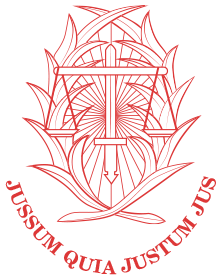RESUMO: As normas jurídicas de Direito Internacional de Direitos Humanos não mais comportam a estreiteza conceitual do positivismo do século XX. Este estudo visa a evidenciar, por meio do método dedutivo e semiótico peirciano, os principais desafios a serem enfrentados, e suas consequências jurídicas, quando se adota um conceito positivista isolado de Direitos Humanos. É destacado um entendimento da norma jurídica de Direitos Humanos mais adequado conceitual e metodologicamente. Conclui-se, neste estudo, que a falta de unicidade conceitual sobre a norma de Direitos Humanos implica, como um dos fatores, na falta de sua difusão na percepção e na consciência coletiva da sociedade humana. Ademais, é argumentado que os Direitos Humanos são, na verdade, a interface do Direito lógico-formal com a Ética, no sentido peirciano.
PALAVRAS-CHAVE: Direitos Humanos. Direito Internacional. Filosofia do Direito. Ética. Semiótica.
ABSTRACT: The legal norms of international human rights law no longer contain the conceptual narrowness of twentieth-century positivism. This study aims to highlight, through the deductive and Peircean semiotic method, the main challenges to be faced, and their legal consequences, when adopting an isolated positivist concept of Human Rights. An understanding of the most appropriate human rights legal standard is conceptually and methodologically highlighted. In this article, it is concluded that the lack of conceptual uniqueness about what human rights norm is leads to the lack of its diffusion in the perception and collective consciousness of human society. Moreover, it is argued that human rights are the interface of logical-formal law with Ethics in the Peircean sense.
KEYWORDS: Human Rights. International Law. Philosophy of Law. Ethics. Semiotics.
Orcid: https://orcid.org/0000–0001-8066–4197
Submissão: 02/03/2020 | Aprovação: 07/03/2020
 Loading…
Loading…
